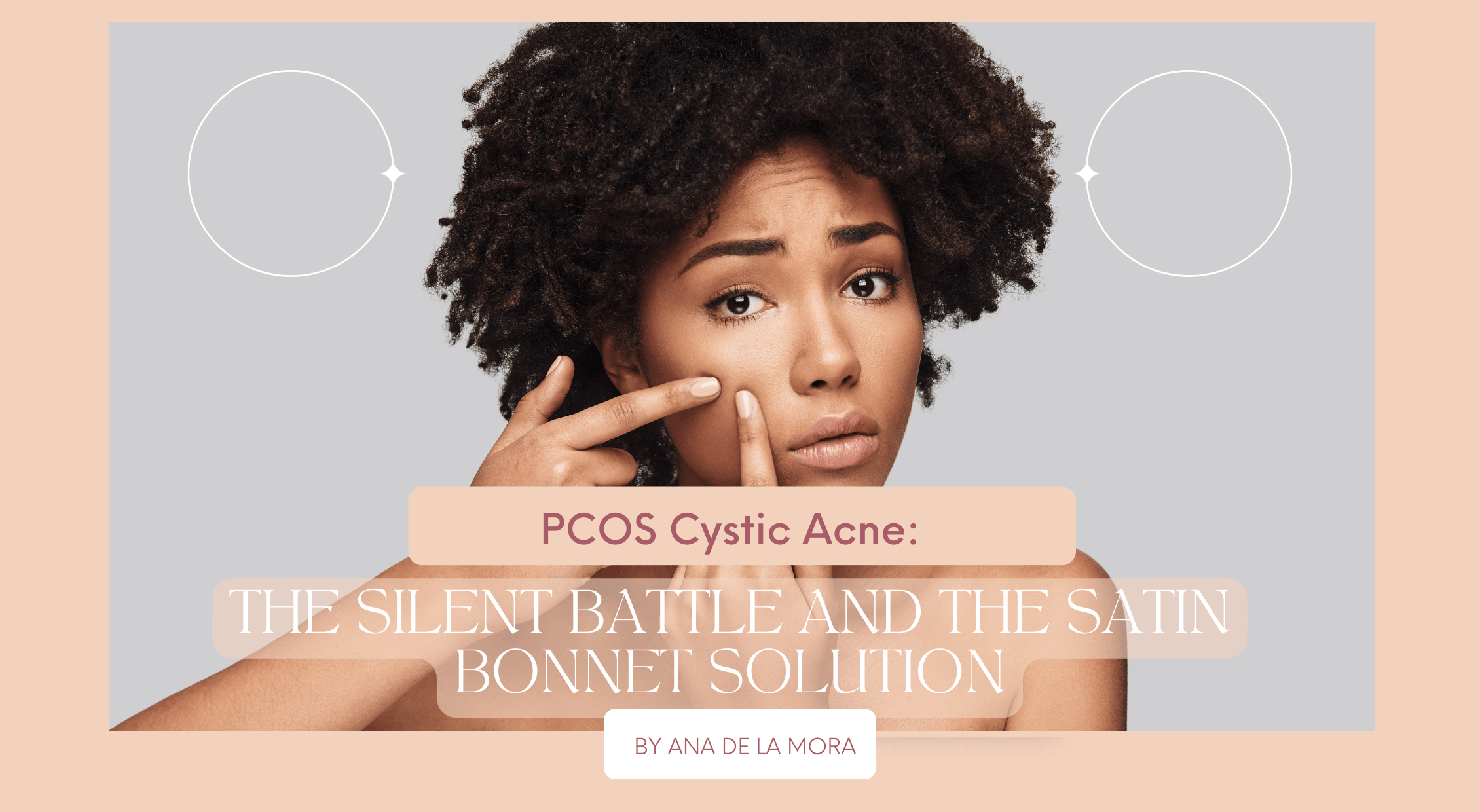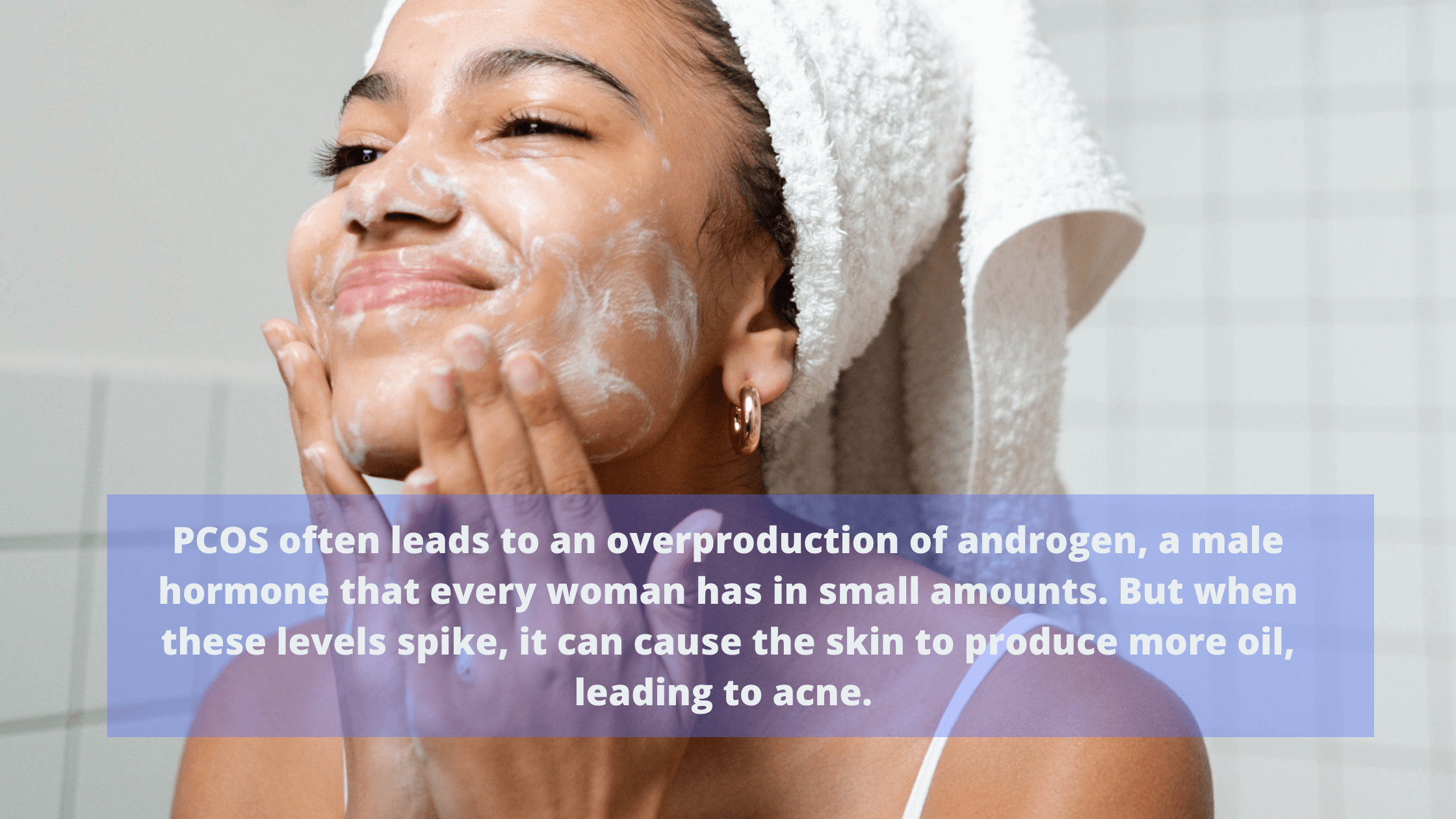Tackling PCOS Cystic Acne: The Unexpected Role of Satin Bonnets
PCOS Cystic Acne: The Silent Battle and the Satin Bonnet Solution
PCOS (Polycystic Ovary Syndrome) is a common hormonal disorder that affects one in ten women of childbearing age. It comes with a host of unpleasant symptoms, one of which is cystic acne. But fear not, for there's an unexpected hero in this story - the satin bonnet.
PCOS and Cystic Acne: The Unwanted Duo
PCOS often leads to an overproduction of androgen, a male hormone that every woman has in small amounts. But when these levels spike, it can cause the skin to produce more oil, leading to acne. And not just any acne - we're talking about deep, painful, cystic acne that can leave scars. This type of acne is particularly challenging to manage due to its severity and the potential for long-term skin damage.
The Satin Bonnet: A Stylish Solution
Now, let's talk about the satin bonnet. This stylish accessory, often used to protect hair, has a hidden benefit - it can help manage PCOS cystic acne. How, you ask? By covering your hair during the night, you protect your skin from the friction of your hair against your face while you sleep. This prevents clogged pores, which can lead to acne. Plus, with your hair covered, your pillowcases stay cleaner, reducing the chance of bacteria coming into contact with your skin.
But not just any satin bonnet will do. You need one that combines style, comfort, and quality, like the ones from Olki Beauty. Handmade and designed to elevate your style, these satin bonnets are not just a treat for your hair, but also a boon for your skin.
More Than Just a Bonnet: A Comprehensive Approach to Managing PCOS Cystic Acne
While the satin bonnet is a great tool in your arsenal against PCOS cystic acne, it's important to take a comprehensive approach to manage this condition. Here are some other steps you can take:
Maintain a Healthy Diet: Certain foods can trigger acne. Try to limit your intake of dairy and processed foods, which can spike your blood sugar and lead to inflammation. A diet rich in lean proteins, fruits, vegetables, and whole grains can help balance your hormones and reduce inflammation.
Exercise Regularly: Regular exercise can help regulate your hormones, reducing the severity of PCOS symptoms. Whether it's a brisk walk, a yoga session, or a high-intensity workout, find an activity that you enjoy and make it a part of your routine.
Consult a Dermatologist: If your acne is severe, it might be a good idea to consult a dermatologist. They can provide personalized advice and treatment options. This can include topical treatments, oral medications, or even hormonal therapies.
Consider Medication: In some cases, medication might be necessary to manage PCOS and its symptoms. Talk to your doctor about this. Medications like birth control pills or metformin can help regulate your hormones and manage symptoms.
Stress Management: Chronic stress can exacerbate PCOS symptoms, including cystic acne. Techniques such as mindfulness, meditation, and deep breathing can help manage stress levels, improving your overall well-being and potentially reducing acne flare-ups.
PCOS cystic acne can be a tough battle, but with the right tools and strategies, it's a battle you can win. Whether it's donning a satin bonnet, maintaining a healthy diet, exercising regularly, seeking professional help, managing stress, or considering medication, every step you take brings you closer to healthier skin.
X.O.X.O.
Ana

